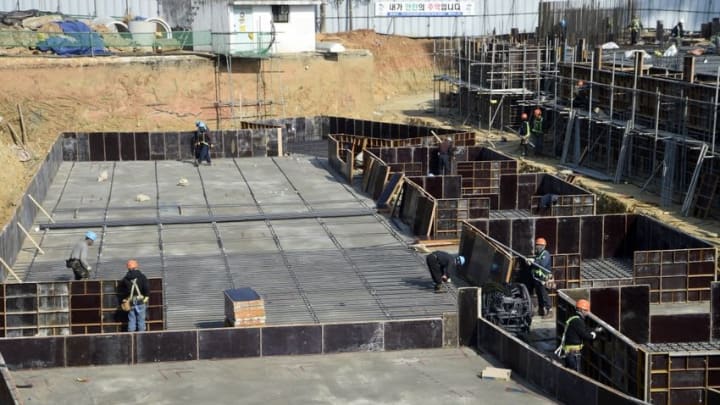NHL 2018 Olympics Participation in Doubt, Reports IIHF President Rene Fasel
NHL 2018 Olympics participation in Pyeongchang, South Korea is apparently in doubt, based on reports from IIHF President Rene Fasel.
According to Fasel, he puts the odds of the NHL showing up at 60 percent.

It’s important to remember though that negotiations between the IIHF and NHL have been historically complicated. Heading into Sochi in 2014, an agreement wasn’t made until seven months prior to the Olympic games.
Earlier in the year, it was announced the International Ice Hockey Federation notified the NHL that they would no longer cover the costs of travel or insurance. This continues to be the largest hurdle to getting NHL players to South Korea.
via CBC,
While the IOC gives the IIHF around $40 million of revenue each Olympics, Fasel insists that money is earmarked for developing hockey and wants national Olympic committees and hockey federations to plug the gap.
The IOC pulled its extra subsidy because its leaders are “a bit scared that other (sports) federations will come and also ask for some compensation for travelling and insurance,” said Fasel, who is also an IOC member and serves on its rule-making executive board.
With the Winter Olympics set to take place in South Korea (2018) and Beijing (2022), the hope was for the NHL to expand its game into the Asian market, which is yet to be tapped.
More from Business Of Hockey
- The problem with another expansion franchise in the NHL
- This city needs a PWHL franchise as soon as possible
- Should NHL Teams Hold Joint Practices With Other Teams Like The NFL
- How Expanding the NHL Regular Season Can Help Grow The Game
- Minor League Baseball Team Honors The Hartford Whalers
South Korea has invested a lot of time and money into their hockey program. Several leagues have developed in recent years, and they’ve even managed to attract North American talent. Some of that talent has brief connections to the NHL.
The Koreans competed in the Division 1 World Championship last month, the same one that promoted Slovenia and Italy for next year’s WHC.
South Korea was the next best team, and had they beaten Italy, they would have been one of the countries promoted in 2017.
via Globe and Mail,
South Korea’s team at the Division 1 Group A world championship last month in Katowice, Poland, was filled with North Americans. Dalton started every game in goal and posted a sparkling .930 save percentage. Michael Swift – who grew up in Peterborough, Ont. – led the team in scoring with five goals in five games. Towering 6-foot-5 forwards Brock Radunske and Mike Testwuide (the lone American) and defencemen Bryan Young and Eric Regan rounded out the import crew, and none had a hint of Korean ancestry.
Two of the team’s new stars, Radunske and Young, were drafted in the NHL by Edmonton; Young played 17 games for the Oilers almost a decade ago. Two others had captained their junior teams in the Ontario Hockey League.
More from Puck Prose
- Detroit Red Wings 2023 Rookie Camp Has Plenty of Ups and Downs
- This Columbus Blue Jackets rookie doesn’t want to be forgotten
- 2 trades the Boston Bruins must make to secure the Stanley Cup
- 3 reasons the Avalanche won’t win the Stanley Cup in 2024
- This is a big year for Alex Turcotte and the Los Angeles Kings
One wonders how the host South Korean’s might fair in 2018 if the NHL fails to reach an agreement with the IIHF.
China is still far behind their Korean neighbors. They recently competed in the World Championship’s 5th tier (Divsion II – Group A) – third worst division.
China’s opponent’s were Serbia, Netherlands, Iceland, Spain, and Belgium.
The Chinese didn’t manage to win a single game, losing four in regulation, and one in overtime (to Belgium), finishing with six goals for, 24 against.
At this point, Rene Fasel says that China’s participation in 2022 is also in doubt, which would be the first time a host country didn’t compete.
via CBC,
“One thing they do not like is to lose the face, so they cannot do that,” Fasel said. “I hope and I think they will have a Chinese player, Chinese team in Beijing in 2022. We cannot put them on the ice and they will be beaten 15, 20 nothing. We cannot do that.”
There is hope moving forward for the NHL in regards to the world’s largest untapped economy.
via CBC,
Things are looking up for China, with increased government interest and the Russia-based Kontinental Hockey League due to open a team there this year, but Fasel said the NHL is key to unlocking potentially vast commercial rewards in China.
As the KHL pounces on a golden opportunity, it’s a decision that should pay dividends in the long-run, and could easily lead to an expansion of several other teams throughout China as the game grows in popularity.
Next: World Cup of Hockey Final Roster Predictions
Is the NHL squandering its opportunity to market its product by not showing up to South Korea? The plan from the beginning was to use these two Olympic games as a way to grow hockey in Asian countries.
Instead, the NHL 2018 Olympics in South Korea are in doubt, and by the time they introduce their product in 2022, the KHL will already have four years of exposure. If the NHL wants to sell the game internationally, they need to find a way to get their players to Pyeongchang in 2018.
